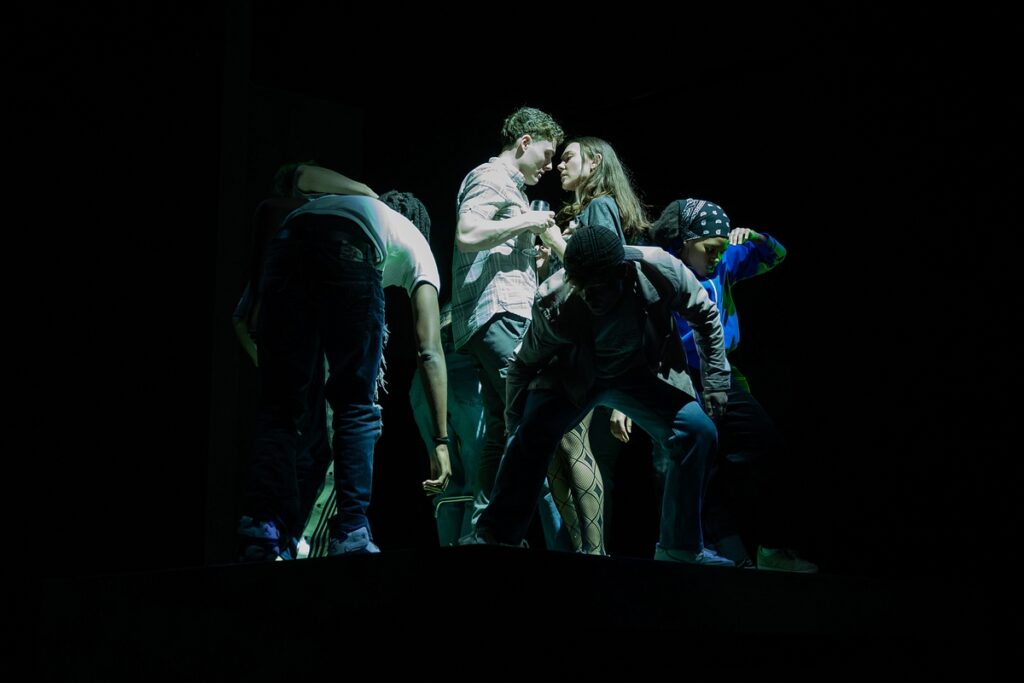
Two’s Company is acclaimed for bringing a series of forgotten masterpieces to London theatres in new productions since its foundation in 2003. Previous productions have included Charles Dyer’s Staircase, James Saunders’ Bodies and Ernest Hemingway’s The Fifth Column, about his experiences in the Spanish Civil War.
The company, run by the artistic director Tricia Thorns, is returning with Don’t Destroy Me by pioneering Jewish writer Michael Hastings. The play follows the story of Sammy, who comes to live with his father and stepmother, 15 years after they escaped Nazi Europe as refugees. It opens at Arcola Theatre later this week and stars. Nathalie Barclay plays Shani and stars alongside Nell Williams, and Sue Kelvin,who are joined by Nicholas Day and Alix Dunmore.
Barclay was most recently seen on stage at the Watermill Theatre as Kate in Visitors and will be recognisable to television fans for her on screen roles in Killing Eve and Trigonometry. She’s also set to appear in Season 2 of Apple TV’s Surface.
Ahead of opening Don’t Destroy Me, we caught up with Barclay to talk about the difference between acting for theatre and television, and what the play is all about.

Q&A with Nathalie Barclay
What can you tell us about Two’s Company and what it’s like to be taking on the role of Shani in Don’t Destroy Me?
It’s great. Two’s Company is run by Graham and Tricia, two true theatre heavy-weights who are dedicated to uncovering great plays of the past. Our director, Trish, had done the most profound amount of work on the text and each of our characters before we had even started rehearsals; it was incredible. It meant we were able to get really stuck in from the outset. Shani is a brilliantly challenging part. I keep discovering new depths to her. I think she could be easily written off as one thing, but she’s exceptionally nuanced which is such a gift and it keeps things interesting. It’s really mind-boggling to think that Michael Hastings was a teenager when he wrote the play!
What was it about the play that drew you to it?
I’m really drawn to Two’s Company’s mission to unearth plays that have been unjustly forgotten. It’s a really interesting play, and knowing that the late writer Michael Hasting’s wife, Victoria, would be involved in the production was also a real draw. It’s a true labour of love for the company. They are so passionate about giving this play a good opportunity to be seen.
How does it feel to be taking a play like this and bringing it back into the spotlight?
It’s a real privilege to be trusted with it and I’m grateful to Victoria Hastings for her involvement. We’ve been told that Michael Hastings based a lot of this play on his own experiences and people he crossed paths with, so there is certainly an extra layer of weight and responsibility to do the work justice. Luckily, I’m surrounded by some really exceptional actors and a great creative team. I’m constantly inspired by everyone’s work.

You’ve worked in both theatre and television – how do the two mediums compare?
I could talk about this for hours! I used to think they were worlds apart, but having done a bit more theatre recently, I’m reminded of how much overlap there is. I think sometimes screen can be more exposing than stage, but then, in a more intimate theatre like the Arcola, this isn’t necessarily true. The lightning-bolt of energy that you feel on stage with an audience is definitely pretty different to screen work, but then again, during longer runs of theatre shows, it can be a real challenge to keep the work fresh and exciting – you have to keep discovering and picking new points of concentration. Part of the magic of screen for me is the luxury of knowing that when the takes are done, your work is done and your story is told. You can give it everything, and then move on.
What do you hope audiences take away from the show?
I suppose I’d like audiences to reflect on what we unintentionally pass on to the people around us, and particularly, future generations. Trauma runs deep through so many of the characters in this play and is so easily absorbed by others. We’re much more aware now of the concept of generational trauma, but I think it’s very much still a message worth repeating and reflecting on.
Don’t Destroy Me is at Arcola Theatre from 10 January to 3 February 2024















